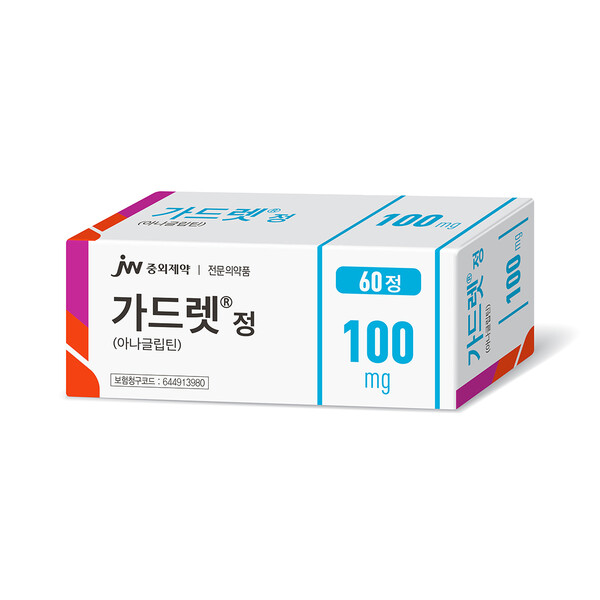JW Pharmaceutical said on Wednesday that its diabetes treatment, Guardlet (ingredient: anagliptin), demonstrated the superiority of improving glycated hemoglobin (HbA1c) in a recent observational study.

Guardlet, a DPP-4 inhibitor, is a type 2 diabetes treatment mainly composed of anagliptin. Type 2 diabetes, unlike type 1 diabetes, is caused by insulin deficiency.
Professor Kim Sung-rae of the Catholic University of Korea and Professor Kim Sang-yong of Chosun University jointly conducted the study on 1,119 patients with glycated hemoglobin levels of 7.0 percent or more among type 2 diabetes patients who have been taking DPP-4 inhibitors alone or in combination with other drugs for more than eight weeks.
After taking 100mg of Guardlet, the change in glycated hemoglobin levels was 0.4 percent lower than before taking in week 12 and 0.42 percent improvement in week 24 for the entire patient cohort.
Furthermore, the level of glycated hemoglobin in patients without accompanying diseases such as dyslipidemia, high blood pressure, and angina also improved significantly. The glycated hemoglobin levels in the patient group without accompanying diseases decreased by 0.68 percent and 0.89 percent in weeks 12 and 24 respectively, while those in the patient group with accompanying diseases fell to 0.27 percent and 0.22 percent, respectively.
Overall, in the group without comorbidities, the proportion of patients who achieved the HbA1c target of < 7 percent was 10 percent at baseline but improved to 70 percent at weeks 12 and 24. In contrast, the group with comorbidities, the proportion was 4 percent at baseline and increased to 20 percent at week 12, and 24 percent at week 24.
"In particular, the replacement with Guardlet before adding other oral hypoglycemic agents to patients without comorbidities may be a new treatment option," said Professors Kim.
The study was published in the online edition of Springer’s Diabetes Therapy.

